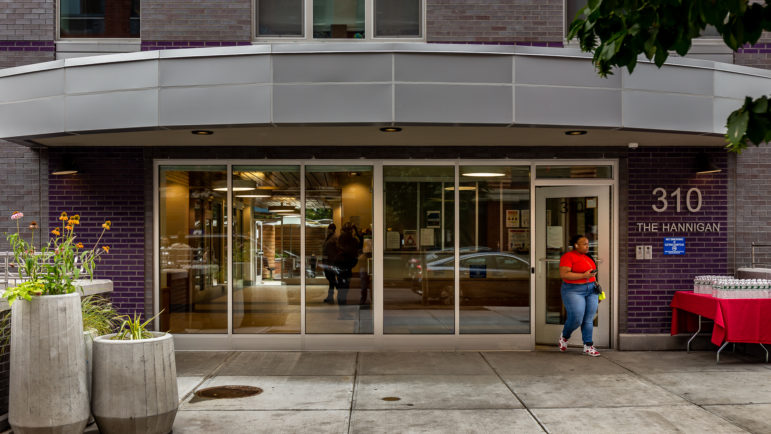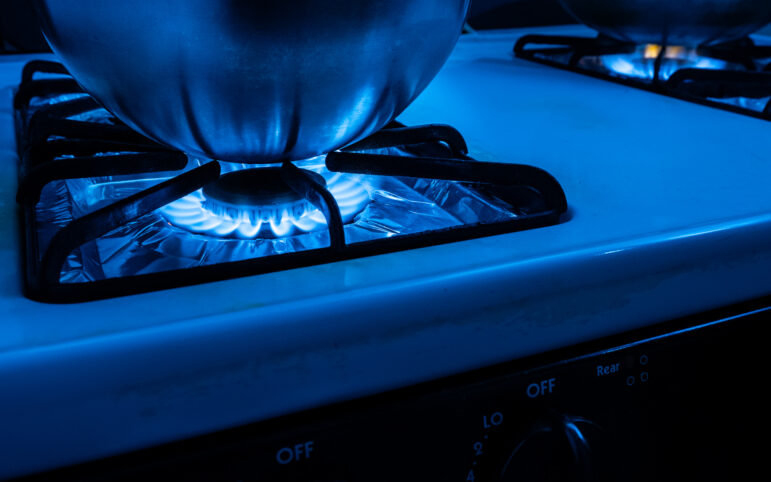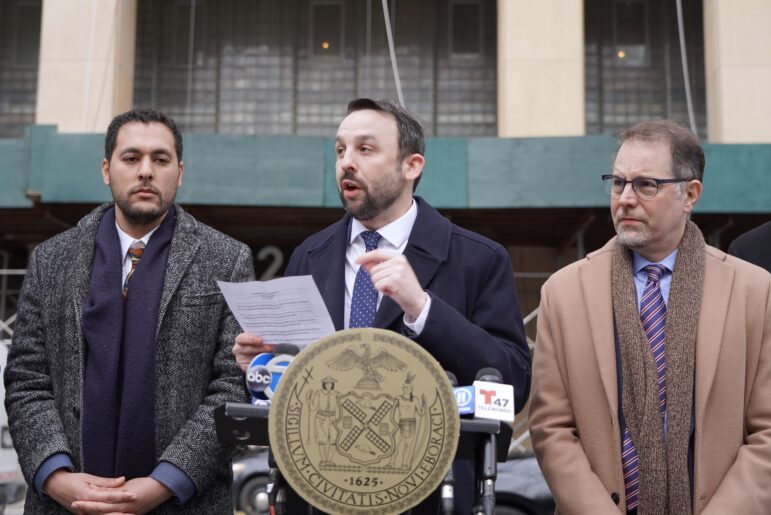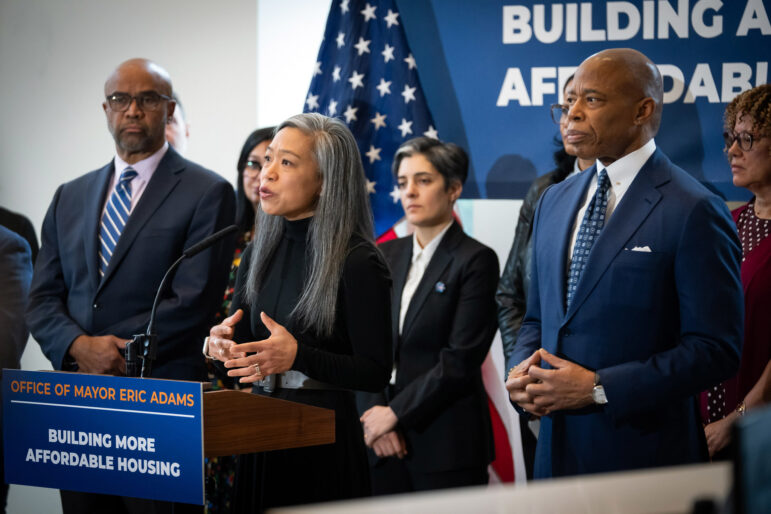“Passing this legislation before the end of the session allows legislators to implement a transformative emission reduction strategy, significantly improving air quality for their constituents, especially for communities living and working along bus routes and near bus depots.”
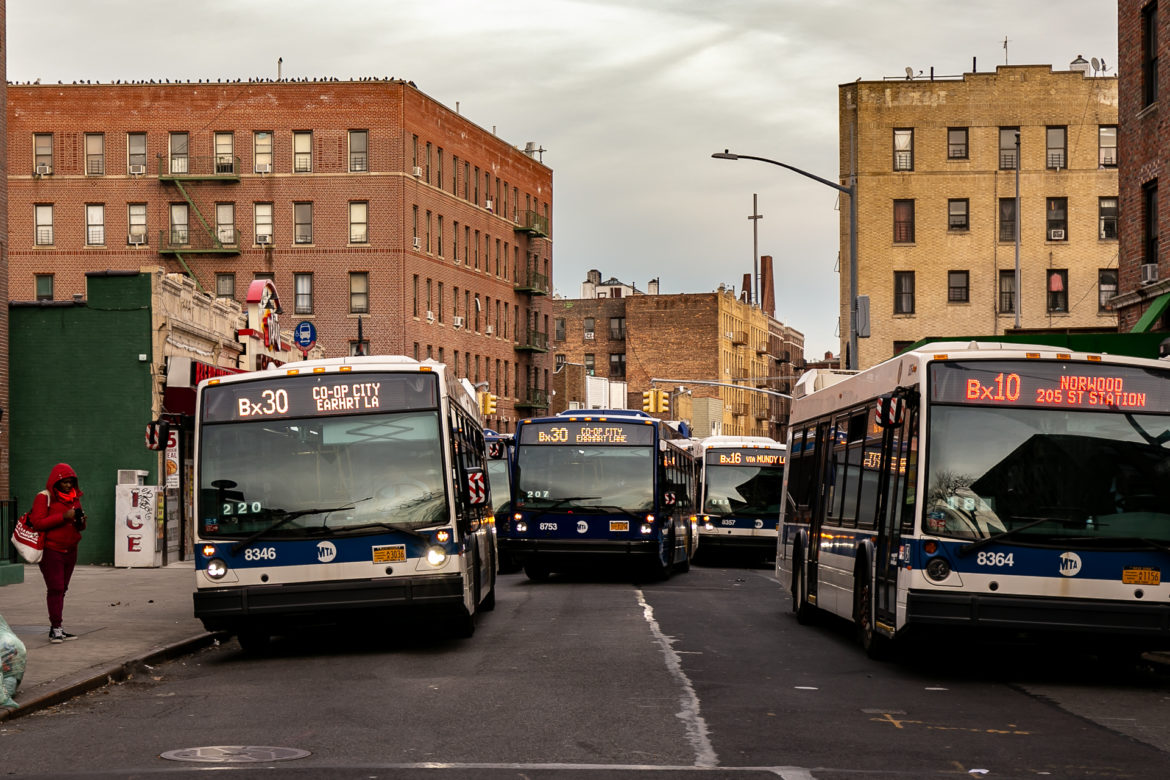
Adi Talwar
A flock of buses on 206th Street near Rochambeau Avenue in the Bronx.Our days are inundated with news of how our delayed response to the climate crisis hurts frontline communities. From recurrent extreme weather events to rising sea levels, the signs of environmental distress are here. As responsible stewards of our planet, we must take bold and decisive actions. We know air pollution affects us all, but it isn’t experienced equally, disproportionately impacting low-income communities of color.
The Green Transit, Green Jobs bill (GTGJ) represents an equitable step toward New York State meeting the ambitious emission mandates set by the Climate Leadership and Community Protection Act (CLCPA). This legislation proposes a planned transition with a comprehensive roadmap and guidelines developed by the New York State Energy Research and Development Authority and Department of Transportation.
It aims to protect communities from the harmful impacts of vehicle pollution, as recommended in the state’s Climate Scoping Plan. Passing this legislation before the end of the session allows legislators to implement a transformative emission reduction strategy, significantly improving air quality for their constituents, especially for communities living and working along bus routes and near bus depots.
The legacy of environmental racism has left its imprint on generations of communities of color. High rates of respiratory and heart disease are directly connected to the historic housing discrimination and racist land-use planning that placed polluting infrastructures in black and Brown neighborhoods. These include highways, last-mile and e-commerce mega warehouses, and bus depots.
The cumulative effects of these transportation-polluting infrastructures are a leading cause of poor air quality and health in our community. The GRID 2.0 plan, highlighted by UPROSE, emphasizes the importance of addressing these systemic issues. It proposes sustainable infrastructure projects that improve air quality and offer public health benefits to communities like Sunset Park.
In New York State, transportation is the second largest source of emissions. The resulting air pollution—which includes nitrogen oxides, particulate matter, and carbon monoxide—threatens the health of our community and exacerbates the climate crisis. Diesel-burning buses produce harmful particulate emissions linked to asthma and other respiratory diseases.
In New York City, 75 percent of low-income New Yorkers of color rely on the Metropolitan Transportation Authority (MTA) buses for transportation. Sunset Park is one of the city’s most globally diverse communities. It’s home to thousands of New Yorkers worldwide and the Jackie Gleason bus depot, one of the 29 MTA bus depots across the five boroughs. The levels of fine particulate matter (PM2.5) in the community are measured at 8.5 micrograms per cubic meter, surpassing borough and citywide averages. Implementing Green Transit, Green Jobs (GTGJ) will reduce toxic air pollution and lead to fewer asthma cases and respiratory-related hospital visits, demonstrating the interconnectedness of public transportation policies and public health outcomes.
While critics of the proposed bill argue that transitioning to zero-emissions bus fleets is prohibitively expensive or technologically daunting, the reality paints a different picture. The cost of zero-emission technology has significantly decreased, making it both affordable and accessible, with numerous cities and transit agencies around the globe already making successful transitions to zero-emissions vehicles. The importance of this transition cannot be overstated, especially when considering the healthcare costs and disruptions to work and education that result from inaction.
Investing in zero-emission bus fleets is not just a necessary step but a wise investment in our future and communities. By adopting climate-smart strategies, New York State stands to sidestep long-term public health and resiliency costs, highlighting the imperative of weaving initiatives like GRID 2.0 into our environmental policy fabric. Now is the time for legislative leadership to ensure a healthier, more sustainable world for future generations by passing the GTGJ bill this session.
Marcela Mitaynes represents Brooklyn’s 51st Assembly district. Elizabeth Yeampierre is the executive director at UPROSE.


